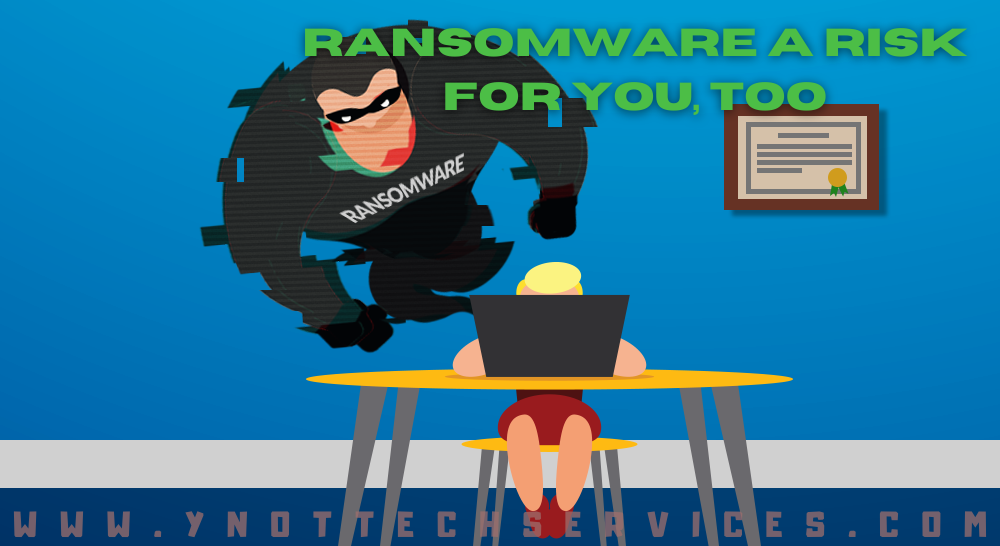 Ransomware a Risk for You, Too
Ransomware a Risk for You, Too
Ransomware headlines focus on interrupted hospital services or downtime at several major brands. But ransomware can just as easily infect your home computer.
When you’re a victim of ransomware, you aren’t able to do anything on your computer. Cybercriminals encrypt your files and demand you pay a ransom to unlock your device. They’ll ask for cryptocurrency in return for the encryption key.
You may think the bad guys wouldn’t care about your residential system, but you’d be wrong, especially now. Think of all the people at home connecting remotely to business networks. Plus, kids make a weak link as they don’t fully understand the risk.
Many residential antivirus solutions aren’t up to protecting your computer from ransomware.
How to prevent home ransomware
Ransomware in residential homes may not grab headlines, but it’s still going to be big news at your house. Any computers connected to that network with the ability to save to one another could be infected.
The biggest issue with malware of any kind? Your devices may be infected and you might not even know it. Get a cybersecurity solution for your home that looks where you can’t. A good antivirus software that supports anti-ransomware uses machine learning. Artificial intelligence (AI) reviews a database of known threats before running new files on your computer. This helps detect and block any malware before it executes.
Some antivirus software whitelists certain computer folders such as “My Documents,” making it possible for only trusted applications to write to that folder.
You’ll also want to have a good backup. If you’re working on a novel in your spare time, keeping the family photos on your desktop, or developing an in-depth family genealogy, for instance, don’t risk losing access to any of these. Instead, make frequent backups and keep them separate from your network. This can help preserve your personal data in the event of a malware attack.
Always be on the lookout
Phishing is the top way ransomware infiltrates computers. So, talk to all home network users about the need for vigilance. Cyber bad guys are doing a much better job these days of mimicking reputable companies. A phishing email will look like it is coming from a trusted website. They will have worked hard to gain your confidence to open the message and click on their link.
Caution everyone, especially kids, against clicking on links or downloading attachments, especially if the email is making an urgent or emotional appeal.
You can also stay safe by taking care of what websites you visit. It’s hard enough to determine if an email is legit, but now you need to be wary of where you go online? Yes, it’s true. One type of ransomware gets you to download and install the software, while another installs it without you knowing when you visit an infected site.
Steer clear of top culprits such as gambling, pornography, and pirated video sites. When online, look for the lock icon before the domain name: that indicates encrypted Web traffic. And avoid clicking on any download links on the sites you visit.
Want to remain ransomware-free? Our IT experts can help you take preventative measures. We’ll also make sure that your antivirus software is doing what you want it to do. Contact us today at 403-915-8574



